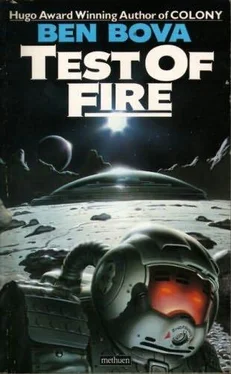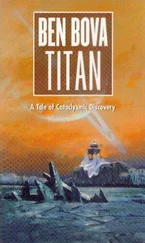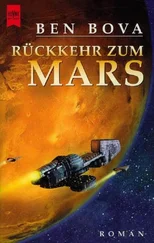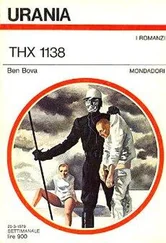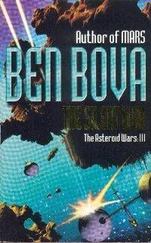“We have got to be able to take care of ourselves,”
LaStrande kept insisting, clipping each word for emphasis. “We cannot depend on Earth for anything! ”
“But we can’t just turn our backs on the people Earthside,” Douglas countered. “They need our help, and we need the things they can provide for us.”
“No! Never! The Earth is gone! Write it off.”
“That’s inhuman!”
When the digital clock set into the wall next to the room’s only door showed that the argument had raged for fifty-five minutes, Kobol finally unfolded his lanky frame and got to his feet.
“You’re both right,” he said, looking first at LaStrande and then at Douglas Morgan. “We’ve got to be able to support ourselves. We can’t depend on supplies from Earth anymore. But there are supplies that we lack, and Earth has. To become fully self-sufficient, we’ve got to send teams to Earth to get those supplies.”
Douglas, who had been on his feet for the whole debate, sank into his chair. LaStrande peered through his thick glasses, eyeing Kobol owlishly.
“We should organize an expedition,” Kobol went on. “More than one, if necessary. Go Earthside, take what we need, and bring it here.”
“What about the people Earthside?” Douglas asked.
With a forlorn shake of his head, Kobol replied, “Catherine is right. We just can’t take on more people. We haven’t got the room, the facilities, or the food or medicine. Most of the Earthers you brought up, Doug, are too sick to work. Half of them are going to die of radiation poisoning. Bringing them here was a waste of time and energy.”
Douglas stared at him, his face showing more hurt than anger. But he said nothing. Kobol looked around the table, abruptly sat down.
Lisa broke the lengthening silence. “We’ll need a list of requirements from each department. Catherine, you’ll have to go through the medical stores and tell us what you need from Earthside. Prioritize the list; put the things you need most at the top.”
Catherine Demain nodded and murmured, “A pharmaceutical factory would be nice.”
Lisa leaned forward, arms on the polished surface of the conference table. “Each of you… I’ll need a prioritized list of needs from each of you.”
“I’ve been thinking,” LaStrande said, his voice softer now that he was no longer arguing, “that we could ease the strain on the air systems if we simply grew more grass and other greeneries throughout the settlement. Can’t we peel off the flooring in the corridors and plant grass along them?”
“It’d be trampled down, wouldn’t it?” Blair asked.
“There were resistant strains developed Earthside,”
LaStrande said. “For lawns where kids would play…” He blinked behind his owlish glasses and took a long, deep breath, as if fighting back tears. “Anyhow—if we could find the right seeds, or even strips of sod…”
“Put it on your list,” Lisa said.
Douglas slumped back in his chair, saying nothing, his eyes focused a quarter-million miles away. Lisa glanced at him and knew that he had not accepted defeat; he was merely planning the next round of the battle.
“Who’s going to head this expedition?” asked Blair. “Any volunteers?”
Inadvertently, even against their conscious wishes, everyone turned to Douglas.
He nodded. “Sure, I’ll do it.”
“No,” Lisa said.
The single syllable filled the conference room with ice. Everyone froze where they were, unable to move or speak.
Finally Douglas blinked and asked, “What do you mean?”
Her beautiful face, framed by her black hair, took on the look of a saint facing martyrdom.
“Douglas has already led one mission Earthside. My husband has taken enough risks for the time being. I won’t chance losing him again. It’s not fair to ask him to go again.”
Douglas started to reply, but held his silence.
The others turned to one another, muttering.
Kobol said languidly, “I’ll volunteer for it. It’s my idea, basically, so I guess I ought to put my money where my mouth is.”
“You mean, put your ass on the line,” Marrett joked.
A ripple of relieved laughter went around the table.
“We should take turns on this,” LaStrande suggested, “if we’re going to send more than one expedition. No one of us ought to be out under the pressure more than anyone else.”
“Take turns, yes. That’s fair.”
“That’s the democratic way.”
Douglas shook his head. “Running a quasi-military expedition isn’t a democratic chore.”
“Come on now, Doug,” Catherine Demain chided. “You can’t be the hero every time. Give somebody else a chance.”
Walking down the curving corridor that led toward their quarters, Douglas scuffed a boot against the worn plastic flooring.
“Can you imagine grass growing along these tunnels?” he asked.
Lisa, walking beside him, looked up at the raw rock of the arched tunnel roof. “We’ll need special lights for it. Infrared, I think. Or is it ultraviolet?”
“Near-infrared,” he answered. He mused aloud, “We can get inert gases for fluorescent lamps easily enough. And there’s plenty of glass in the rocks.”
“All we need is the grass seed.”
“And fertilizer.”
“Sylvia Dortman, in the bio labs, she might be able to engineer nitrogen-fixing microbes for the grass. It was done on Earth before… before…”
Lisa’s voice suddenly choked up.
They walked in silence for a few moments, then Douglas asked, “Why did you object to my leading the next expedition Earthside?”
She glanced up at him, then pulled her gaze away and looked rigidly straight ahead. “I don’t know. The words just blurted out of me.”
Douglas watched her carefully as they walked slowly side by side. This was the Lisa he had known long ago, back on Earth, the vulnerable warm beauty he had fallen in love with. Not the ice-hard statue she had become. Has the ice melted? he asked himself. Has all that’s happened over the past few weeks brought her back to me?
He started to speak to her, but the words caught in his throat. Like a damned schoolboy! he thought. He coughed, swallowed.
“Lisa,” he managed at last, “you… in there, in the meeting, you said you didn’t want to risk losing me again.”
“Yes. I know.” Her voice was so low he could hardly hear it.
“Did you mean that? Did you really…”
She stumbled on a loose bit of floor tile and he put out his hand to steady her. She gripped his arm tightly and he swept her to him, wrapped both his arms around her slim body and kissed her hungrily. Lisa felt warm and vibrant in his arms; he wanted to hold her and protect her and love her forever.
She clung to him fiercely. “Oh, Doug, don’t ever leave me again. Please, please, please. Let’s forget the past. Let’s hold onto each other from now on.”
“Yes, yes, of course,” he said. “ ’Til never leave you, Lisa. I love you. I’ve always loved you, every minute of every day.”
He was blinking tears away. She was completely dry-eyed. But he never noticed that.
Hours later, in the darkness of their room, the musky odor and body heat of passion slowly dissipating into the shadows, Douglas sat up in their rumpled bed.
“What is it?” Lisa asked drowsily.
“Fissionables.”
“What?”
“Uranium, thorium—fissionables for the nuclear generators. We can’t run the rock machines or the water factory without them.”
“But I thought we had enough for years and years.”
“About five years,” he said.
“Oh, by that time we’ll have found more right here on the Moon.”
He shook his head in the darkness. “Not likely. Nothing heavier than iron’s ever been found here. Not in any quantity above microscopic. We’ll have to go to Earth for fissionables.”
Читать дальше
